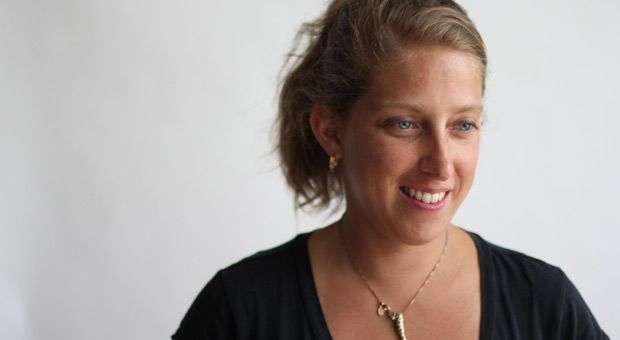Canadian anthropologist Alexandrine Boudreault-Fournier comes to Cuba for the second time to investigate how digital technologies have impacted in Cuban music with MusDig project, led by Professor Georgina Born, from Oxford University, UK. A few years ago she was on the island for her PhD thesis on urban culture in Santiago de Cuba province.
Six specialists chose countries with different levels of development: Kenya, Argentina, India, Canada … The goal was to approach the music consumption, dissemination and production, together with the cultural changes that were born with digitalization, and then draw comparisons, crossed and parallel lines.
Then Alexandrine came to Cuba again due to she has felt for a long time ago a great attraction for its artistic wealth, its differences with Latin America and the rest of the world. “When you start to study on a site, you partially become more interested, now it is like the research place that I’ve liked the most.”
Cuban everyday life was so striking for her, that wh en seeing in the street buyers and sellers of copied CDs, who are in addition authorized to do so, she said, “That’s my topic, forget about anything else.”
Fieldwork was intense. From January to July 2012 , this professor of Victoria University spoke with self-employed and music consumers, interviewed lawyers and artists. Between Havana and Santiago she was accumulating a large amount of information, which later would be very difficult to organize and write it. Then, the results confirm some conjectures and pose new questions.
For the moment, there are no laws governing intellectual property and copyright in this activity. Among those trading CDs there is awareness about the different “legality levels” of sale: permitted in the country and internationally objectionable. “Selling a Celine Dion copied CD in the street is not common. I do not know what would Celine think about that, but I guess that could cause problems. “
These vendors are key pieces in the dissemination of music in Cuba, because the original CD market in the country is virtually absent. Meanwhile, it is impossible to lower the price of the albums because of the production cost.
The permit to exercise this modality becomes economic livelihood for many workers and their families, which seems to have weighed as important element in the process of institutional acceptance and legalization.
The opinions of the creators vary. For some it is in unfair competition, although they recognize that artists barely obtain benefits from the music market; for others, this is an alternative way for people to access their songs, although they are not entirely satisfied. Some people buy their own work in the corner; no matter what someone else to win with what is “his”. Even there are those who take it as a joke: “Johnny Depp is a copy, we are the real pirates of the Caribbean.”
However, to date, the General Society of Authors and Writers (SGAE by its Spanish acronym) or similar entities as CENDA and ACDAM had not received any official complaint from Cuban musicians, so that the situation remains a loudly secret.
Other findings indicate that the content circulating through portals and outlets do not match with Cuban cultural policy in general. “We saw it was less severe in the music, but in filming or audiovisual production there is no consistency either. This type of industry is ruled by the people demand, “Alexandrine explains.
As her research has had ethnographic and qualitative nature, she has lived here what she calls “cultural immersion”. That means learning the language, being sensitive to local and national particularities, taking into account the subjectivity and historical conditions, as well as a proven ethical rigor.
On the approach road, observation and dialogue, “smart grids” were unveiled based on information-specifically music-copied from hand to hand through flash memories. Storage devices then come to play the role of the Internet.
“The big difference is that the user is who moves. A significant result is given in a series of human relationships, personal connections: not having connection means going to someone’s house. That idea of physical contact to exchange digital ‘texts’ is fascinating from an anthropological point of view. “
People metaphorically speak of “virus” and ” pollution” as the extensive and fast way in which content is distributed. Many lyrics of reggaeton and hip hop confirm that “underground” transmission, in such a way that Alexandrine exactly found the same files in several computers.
Changing perspective, in her opinion the limited access to Internet and digital technology has had a positive balance for Cuban artists. By being unable to get updated on what is happening in other places, they are not “contaminated” and their creations shall be original , definitely unique.
The MusDig project is in the process of publishing books and articles in specialized journals, giving lectures on its research results, and building a professional network of people interested in these issues through its site www.musdig.org.uk.
The Canadian teacher has more working plans in Cuba, and for that she takes advantage of the empathy she has already created here. “As anthropologist I live in that environment, I understand the fears, problems, ‘the struggle’, but I also the successes of people, I share those experiences and begin to identify myself a lot.”










